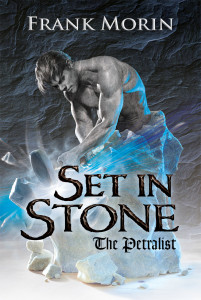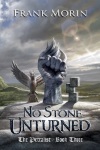A Guest Post by Karen Pellett
There are two major rules to being a better writer: 1) read abundantly (especially in the genre that you are writing), and 2) participate in critique groups.
In 2016, both of those rules went out the window and run over by a bus. And both for the same reason. Life happens.
Five years ago, I attended a conference at my local library with other writers where were guided in the art of critiquing. The group I was a part of clicked so well, that by the end of the day we agreed to keep a good thing going. Thus, C.R.A.P. (Creative Rockstar Author People) was formed. For the next four years, we met at each other’s homes, chowing down and glorious cookie pizzas and hummus while providing feedback on each other’s works in progress. Sometimes we laughed so hard my stomach hurt for days afterwards.
The beauty of C.R.A.P. was the individuals that made up the group: Betsy was a genius at snark, voice, point of view shifts, and story mashups, Jessica was a savant at description, plot gaps, and setting, and T.J. was the grammar guru, character flaws, and the one who ensured that we did honor to our male characters. Their feedback was incalculably valuable. Our brainstorming sessions enlivening. Their friendship immeasurable. And, they provided the perfect counterbalance to another critique group which I am a part of. My writing was propelled to higher levels as a direct result of being a member of these groups.
Then 2016 happened and our worlds were tossed about on the tempest of life. We lost one member to a move across the country. Another, changed jobs and had a new baby join their family. Two of us had family members diagnosed with cancer. As for me . . . well, let’s just say that I’m the magnet for insane life complications, so we’ll just skip what happened to me last year.
As a direct result, C.R.A.P. hit the fan and we stopped meeting. We planned on Skyping our meetings in a vain attempt to keep the group intact, but each time we had to reschedule. It took many months before I realized that since, we stopped I had not written anything new, nor had I read a single book for enjoyment. I still attend the other critique group, but always arrived with previously written works that needed drastic editing help. I was in severe writing depression and this other group was my lifeline.
But I missed C.R.A.P. They had become family.
So how do you replace family? You don’t. There will always be a place on my calendar the next moment we can all get online to meet. But I needed that counterbalance. I personally needed that second stash of writers to enhance and expand on the information gained from my one remaining critique group. I felt like an orphaned writer wandering the streets of literature town begging, “Please adopt me.” But my heart wasn’t in it.
Instead, it was time to start over; start fresh. Over the last few months some of my friends have asked me what to look for in a critique group. My advice: 1) you must be open to others criticizing your babies, 2) find a group with a blend of backgrounds and writing styles, 3) your partners should inspire and improve your writing, not tear you down, and 4) it is okay to say no thank you.
A successful critique group must work well together. But how are you supposed to know that if you have never worked with these individuals before? In talking to another critique member, we agreed on a plan. We sent out notices to those individuals who’d expressed interest in being part of a new group. As part of the selection process we requested that these individuals email submissions of their works in which we would read and provide feedback on. Then, we asked them to do the same for us. Afterward, we would make a group decision. Could work as a team for the greater good? If yes, then we have a new beginning for the new year. If not, then we would utilize our Get out of jail Free card and start the process over again.
Will it work? I sure hope so. Because writing is my therapy and my critique partners my support group.
Will I give up on C.R.A.P.? Never. I will never give up on family.
Karen Pellett is a crazy woman with a computer, and she’s not afraid to use it. Most of her time is spent between raising three overly brilliant and stinkin’ cute children, playing video games with her stepsons, and the rare peaceful moment with her husband. When opportunity provides she escapes to the alternate dimension to write fantasy & magical realism novels, the occasional short story, and essays on raising special needs children. Karen lives, plots & writes in American Fork, Utah.






